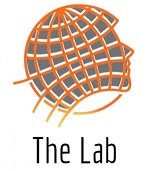Sustainable Development Goals and Policy Mixes
Virtual Conference
Call for papers | Speakers | e-Venue | Practical info | Evaluation Committee | Organization Committee
SDGs and Interactions
It is challenging to define, design, and implement policy mechanisms that would meet these overarching aims of SDGs without resolving potential conflicts among the targets of sectorial SDGs. Several authors argue that, for instance, interventions to increase food security (SDG 2) may come at significant costs to the global climate system (SDG 13), in turn; this situation can put food security itself at risk in the long term. On the other hand, “harmony with nature” (e.g., SDGs 6, 12, 13, 14, and 15) do not easily mix with the calls for and the targets of continued global economic growth (SDG 8). Thus, interactions among SDGs also draw increasing attention of scholars and practitioners and are studied by various scholars and institutions to identify trade-offs and synergies. This virtual conference considers a form of policy mixes among these SDGs, interactions among SDGs and thus, the need for investigating potential policy mix designs to support evidence-based policy making.
Africa and SDGs
Although most scholars acknowledged that development is a transnational process, existing discussions usually focus on negative externalities such as pollution, epidemics, violent conflicts and economic crises. This virtual conference considers a form of positive externality, knowledge spillovers and argues that countries can innovate in policy making, both design and implementation, and achieve more sustainable forms of development by participating in a multiplex policy learning network. Furthermore, the conference emphasizes that policy knowledge transfer should not be one-way, so global governance becomes a truly inclusive and interactive process. One fundamental problem to this end is the design of such multiplex policy learning networks. This conference adopts an evidence-based approach to this problem*. Papers fall under three main themes listed below are welcome. Check out the links for eligible policy mix themes to be able to participate to the conference:
Theme #1 Sustainable People: Inequality and Poverty
Theme #2 Sustainable Innovation
10 Rules for Submission
- Participants are invited to electronically submit contributions to: [to be provided]
- We recommend that abstracts should be carefully drafted and thoroughly checked before submission, in particular the list of authors, to avoid last minute changes.
- Abstracts should be written in English using a clear style. Max. 1,000 characters.
- Abstracts must be submitted a. by e-mail to: [to be provided] ; b. with the title of the abstract as the subject of the e-mail ; c. in the template provided here [to be provided ]
- Based on the authors’ preferences and the accepted proposals, contributions will be allocated to the panel sessions.
- The verbal presentation can either be a simple spoken intervention or can be conducted with the help of visual aids, handouts and similar.
- The submission of an abstract carries with it the obligation that it will actually be presented online by the author or, at least, by one of the co-authors, provided that the abstract is finally accepted.
- Notification of acceptance or rejection by the Scientific Committee will be e-mailed to the submitting author to the given e-mail address by March 2019.
- Accepted abstracts will be published electronically as a single volume on the Lab @ UNU-MERIT website and external repository.
- Accepted authors will be given an opportunity to develop online lecture/courses.
Related Publications
-
Turkeli, Serdar, 2020, Complexity and the Sustainable Development Goals: A Computational Intelligence Approach to Support Policy Mix Designs, Journal of Sustainability Research, 2(1): 1-22, DOI: https://doi.org/10.20900/jsr20200006
* A 3-step neuro-fuzzy expert decision support system is constructed in order to investigate the multifaceted performance interdependencies among 17 SDG performance scores across 162 UN Member States. Results indicate that, the most influential performance drivers are SDG12 (Sustainable Production and Consumption), SDG 9 (Industry, Innovation and Infrastructure) and SDG 11 (Sustainable Cities and Communities) at global level. Yet these findings highlight the importance of establishing and enhancing local infrastructures and communities, innovative and sustainable supply and demand content to increase overall SDGs performance globally. Performance linkages SDG 5 (Gender Equality) and SDG 13 (Climate Action) are global common denominators across localities for positive evolution of overall SDGs performance. Local policy mixes between performance driver and linkage SDGs are recommended by taking eight dependent SDG performances (SDG 10, 16, 15, 8, 6, 17, 7, 2) into account as action contexts. Four autonomous (less influential) SDG performances (SDG 1, 3, 4, 14) remain to be integrated.
-
Turkeli, Serdar, Pui-hang Wong & Eleni Abraham Yitbarek, 2020, Multiplex Learning: An Evidence-Based Approach to Design Policy Learning Networks in Sub-Saharan Africa for the SDGs, in: In: Ramutsindela M., Mickler D. (eds), Africa and the Sustainable Development Goals, Springer, Cham, Springer Nature Switzerland AG 2020, Sustainable Development Goals Series, DOI: https://doi.org/10.1007/978-3-030-14857-7_26




